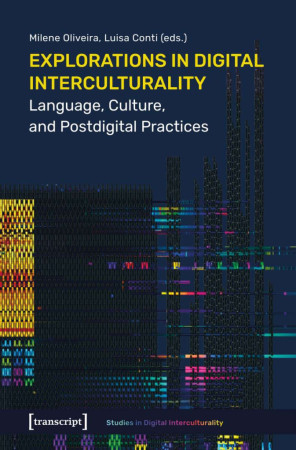‘Living at the limit’: Sociotechnical affordances and unlearning colonial gender and sexuality

Chapter
Author(s) / editor(s):
Daniel Silva
Year: 2025
In: Oliveira, M. / Conti, L. (eds.): Explorations in Digital Interculturality: Language, Culture, and Postdigital Practices. Bielefeld: transcript, p. 167-193.
Keywords: unlearning, sociotechnical affordances, (in)securitisation, digital activism, gender and sexualityLanguage(s): English
Abstract:
This chapter examines how sociotechnical affordances of activist education and
digital interaction enabled a pedagogical practice aimed at disentangling learners from
colonial legacies of gender, sexuality, and race. Specifically, I focus on a 2021 Faveladoc
class, a documentary-making workshop held via Google Meet for young favela residents
in Rio de Janeiro, organised by the grassroots NGO Raízes em Movimento. Led by Joice
Lima, a Black social scientist and activist, the class explored what it means to inhabit
a gendered, racialised body shaped by desire within a peripheral space. The interactions among the instructor, the young participants, and the digital and discursive affordances at play gave rise to a situated collective that actively resists (in)securitisation—that is, the process of framing certain populations as existential threats. As territories predominantly inhabited by Black working-class communities, favelas have been key targets of Brazil’s (in)securitisation, subjected to intensified policing and the persistent ‘crossfire’ between the state and organised crime. Against this backdrop, this chapter analyses how this dialogical digital setting fostered unlearning of patriarchy, racism, and LGBTQI-phobia — ultimately repositioning language as hope.
Post created by: Lymor Wolf Goldstein